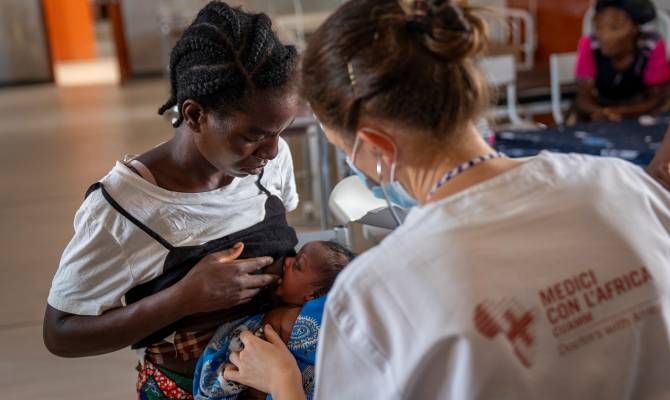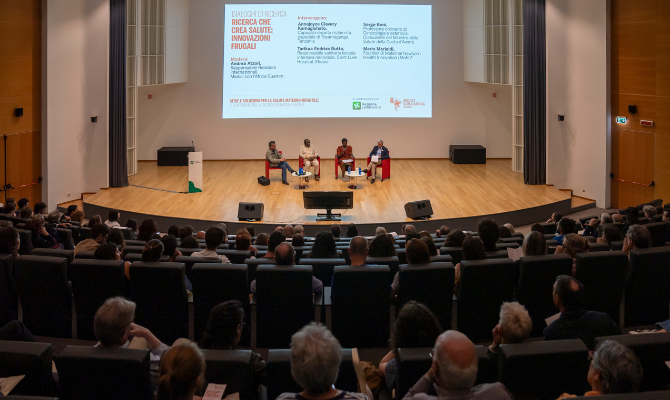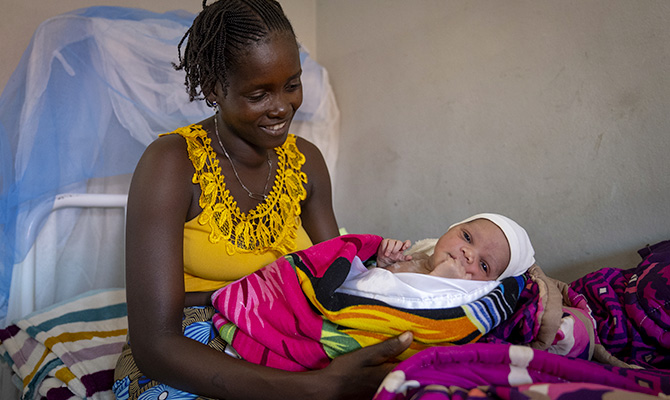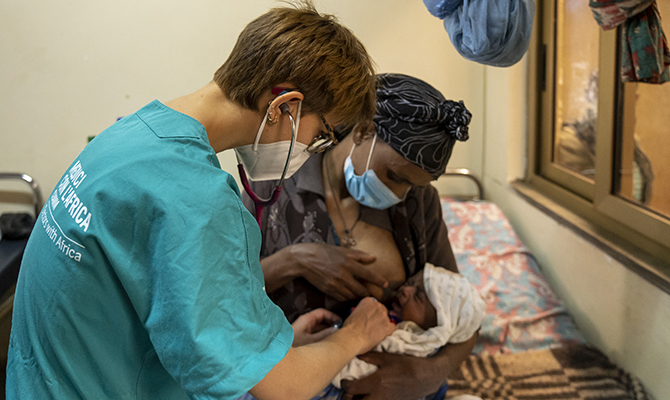Breastfeeding offers numerous benefits for both newborns and mothers. Breast milk provides essential nutrients and crucial immune protection, especially in low-resource settings where diarrheal diseases and respiratory infections are widespread and often fatal.
While reaffirming the importance of every woman’s right to choose whether and how to embark on the breastfeeding journey, during World Breastfeeding Week we highlighted the benefits this simple act has for both babies and their mothers.
Benefits for newborns: protection against diseases – breast milk contains antibodies and immune factors that help prevent infections such as diarrhea, pneumonia, and other common childhood illnesses; optimal growth and development – thanks to the presence of all essential nutrients during the first six months of life and support for cognitive development; reduced long-term health risks – data show that breastfed children have a lower risk of obesity, diabetes, and cardiovascular diseases later in life.
Benefits for mothers: postpartum recovery – breastfeeding promotes uterine contraction and helps mothers return to their pre-pregnancy weight; reduced cancer risk – it lowers the likelihood of developing breast and ovarian cancers; natural birth spacing – breastfeeding can help space pregnancies, a particularly relevant benefit in contexts with limited access to family planning services.
Finally, and no less importantly, breastfeeding significantly strengthens the bond between mother and newborn thanks to physical closeness, hormonal release, and the promotion of emotional security and responsiveness. During breastfeeding, skin-to-skin contact and mutual eye contact stimulate the release of oxytocin — often called the “love hormone” — in both mother and child, fostering deep emotional connection and attachment.
During World Breastfeeding Week, we reaffirmed our commitment to the health of mothers and newborns by promoting, collaborating on, and participating in a range of initiatives aimed at spreading awareness of the benefits of this simple yet important act.
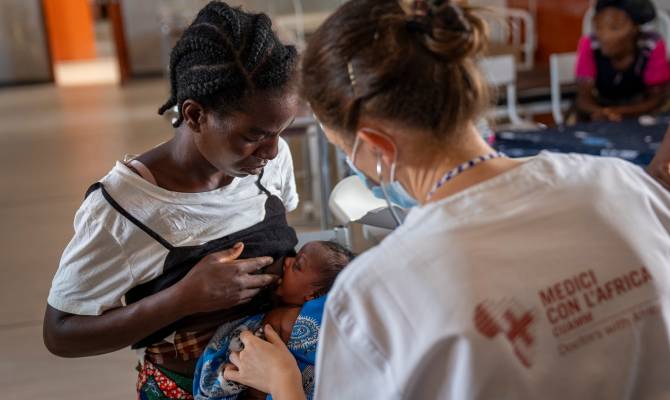
In Mozambique
From the northern province of Cabo Delgado to Sofala and Tete, several initiatives were organized across the country to celebrate World Breastfeeding Week. As CUAMM, under the Protect project in Sofala province, Beira, we highlighted the work of activists in the five health centers involved in the project and at the central hospital (HCB), especially regarding postpartum care and Kangaroo Mother Care.
In Cabo Delgado, our activists engaged women and mothers in awareness-raising activities on the importance of breastfeeding, also inviting them to participate in focus groups and meetings to share experiences. This initiative was carried out within the ongoing project funded by UNICEF.
In Tete province, we opened the week with an official ceremony attended by local health authorities and presented gifts to the maternity ward of the hospital.
In Tanzania
We promoted and participated in a series of activities in the Dodoma region, working closely with the Ministry of Health.
Among the initiatives: a two-day workshop on breastfeeding and maternal-child health; outreach activities in the most remote areas of the district; and a second outreach in Bahi district, where we took part in a Village Health and Nutrition Day.
Additionally, we provided logistical and organizational support for the Village Health and Nutrition Day organized in Kongwa district, Dodoma region, where we work daily in support of the district hospital.
In Sierra Leone
For the opening event of World Breastfeeding Week, we engaged the Pujehun district in awareness activities on topics such as: exclusive breastfeeding during the first six months; breastfeeding up to two years; complementary feeding; good hygiene practices; and health benefits for mother and child.
The event was organized in collaboration with district authorities (DMO and District Nutritionist), international partners, local authorities, and civil society representatives, including over 200 breastfeeding mothers.
Every meeting and initiative promoted by Cuamm during the week provided our teams with opportunities to address this topic while emphasizing an often-overlooked aspect: the need to create support systems for breastfeeding women. This was, in fact, the theme chosen this year by the World Health Organization: “Prioritise Breastfeeding: Create Sustainable Support Systems.”
On this subject, and on maternal and child health more broadly, a series of radio broadcasts were aired throughout the week to spread key messages as widely as possible and to strengthen collaboration and support for breastfeeding women.
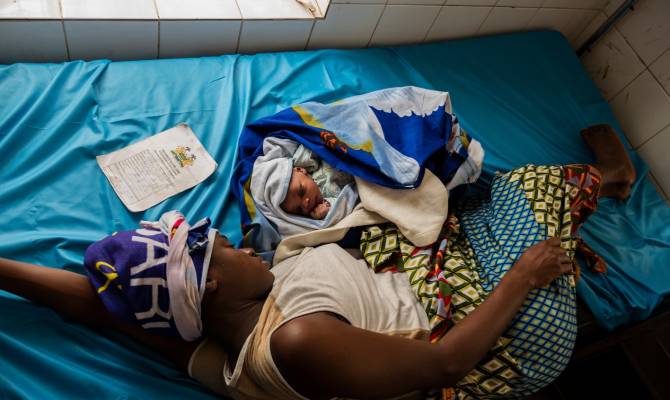
In our daily work — in hospitals, health centers, and within the communities themselves — we do everything possible to foster collaboration and find sustainable solutions involving health facilities, communities, and families.
We do this by:
- Strengthening the skills of health workers in breastfeeding counseling through training, mentoring, and supervision;
- Creating breastfeeding support and safe spaces within hospitals, such as Kangaroo Mother Care units;
- Supporting peer groups such as Mother Support Groups (MSG) in Sierra Leone and “lead mothers” to promote correct practices among peers, with particular attention to involving fathers;
- Collaborating with districts and local health authorities to refer complex cases early to appropriate healthcare facilities.

